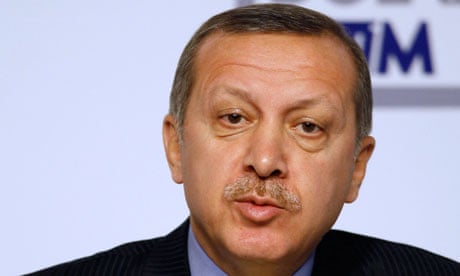A feud over the right to tap what could be the world's biggest discovery of natural gas in years has stoked fierce tensions in the eastern Mediterranean pitting a newly ascendant Turkey against other countries in the region.
With a treasure trove of hydrocarbon reserves thought to lie beneath the sea, the stakes are high: the winner could emerge as an energy broker in charge of Europe's gas supplies for decades to come.
"If the findings are as big as they say then the power political parameters of the region will shift," said Hubert Faustmann, a political science professor at the University of Nicosia in Cyprus.
"We're talking about trillions of cubic metres of hydrocarbons worth billions of dollars."
The row erupted after the divided Mediterranean island instructed a US company, Noble Energy, to begin drilling off its southern shores last month.
It escalated last week after Turkey responded by deploying a seismic research vessel to the same offshore zone with an escort of gunboats.
On Thursday Israel, which has initiated a similar search in its own mineral-rich territorial waters, scrambled F-15 fighter jets to buzz the Turkish ship, according to media reports in Ankara.
Turkey reacted by sending two F-16 planes to chase the aircraft away – heightening tensions between two erstwhile allies whose relations have become increasingly strained since Israel staged a deadly attack on a Turkish aid flotilla bound for Gaza last year.
"A great deal of crisis management has been going on between diplomats behind the scenes," said Faustmann.
"There has been a lot of militant rhetoric on the part of Turkey, a country perceiving itself more and more as the region's hegemon."
Ankara is vehemently opposed to the drilling saying that Cyprus, which is split between Greeks in the south and Turks in the north, should be reunited first. The Turkish prime minister, Recep Tayyip Erdogan, has called the Cypriot and Israeli drilling "madness".
It is estimated that about 10tn ft of natural gas deposits could lie off Cyprus. Last year Noble announced the discovery of 16tn cubic feet of natural gas in an adjacent field in Israeli waters.
The Greek Cypriot government has mapped out 12 offshore "blocks" for gas exploration, saying ultimately Turkish Cypriots in the island's breakaway north will also benefit.
"As an internationally recognised state, a member of the UN and the EU, the Republic of Cyprus is exercising its sovereign rights," said Stefanos Stefanou, a government spokesman.
Turkey, the only country to recognise northern Cyprus, retaliated by signing an underwater exploration agreement with the tiny entity.
Athens, a staunch supporter of the Greek Cypriots, reacted in turn with the Greek prime minister, George Papandreou, urging Erdogan to show "calm and self-restraint".
But with mineral wealth a potentially tantalising unifier and the spectre of an armed standoff also not far away, the dispute has injected new impetus into resolving the island's ongoing division.
Settlement of the problem has evaded peacemakers for nearly 40 years.
Cyprus has been partitioned since Turkish troops, prompted by a coup aimed at uniting the island with Greece, invaded in 1974.
Greek and Turkish Cypriot leaders are due to report to the UN secretary general, Ban Ki-moon, at the end of October in what has been described as a "critical" phase of negotiations.
"This could be a catalyst for the settlement of the Cyprus problem or the dispute that proves to be a spoiler for ongoing negotiations to reunify the island," said Faustmann.
